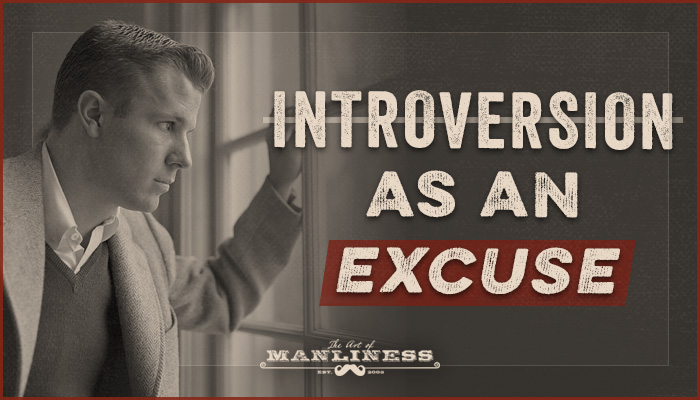
America has long been described as an extroverted country, a society that celebrates and rewards the enthusiastic, the outgoing, the sociable — those with a charming personality and a knack for glad-handing. We’re a people who judge our politicians by their penchant for public speaking, and keep Dale Carnegie’s classic How to Win Friends and Influence People perennially in print. The big man on campus, the life of the party, is the individual with status. In contrast, introverts have often been viewed a bit suspiciously — as nerdy, weird, aloof, and perhaps even inferior.
But in the last several years, these once common currents of thought have been undergoing a silent sea change. While the extrovert remains the ideal culturally, on the individual level, seemingly more and more people are identifying themselves — quite proudly — as introverts.
The biggest factor that’s catalyzed this change? The publication in 2012 of Quiet: The Power of Introverts in a World That Can’t Stop Talking by Susan Cain. Cain’s book was a huge bestseller (15,700 Amazon reviews and counting), and, along with her extremely popular TED talk, has become something of a cultural phenomenon.
Quiet, which explores the unique advantages of introversion and encourages introverts to embrace their disposition, offered a needed correction to the prevailing “extroverts rule” zeitgeist. But as with all oscillations of the cultural pendulum, the “weight” has now in some ways swung a bit too far in the other direction.
This momentum was created not just from the book itself, but by the fact that it arrived in a cultural landscape that would prove particularly receptive to its message. Over the last decade, technology has made social interactions for all of us, no matter our personality, less frequent and necessary. Because we all get less practice in socializing, when we do get out, it’s likelier than ever that we’ll feel shy and/or socially awkward. And it’s easier than ever to dodge human interactions — sending an email instead of having a face-to-face meeting, or turning down an invitation via text that we wouldn’t have had the gumption to decline over the phone.
In the past, stumbling socially might have felt demoralizing, and choosing to stay in rather than go out might have created some guilt. With rising awareness of the upsides of introversion, however, such behaviors have become not only justified, but flattering.
In Quiet, Cain describes introverts as reflective, cerebral thinkers; persistent and focused creative types and problem solvers; people who prefer depth over breadth and enjoy a rich inner life; folks strong in delayed gratification who enjoy “relative freedom from the temptations of superficial prizes like money and status.” They’re the inner-directed inventors, artists, philosophers, engineers, scientists, programmers, composers, and writers of the world. The implication, intentional or not, is that extroverts, in contrast, are shallow and thoughtless, scattered and superficial, influenced by the opinions of others and distracted by every shiny thing.
Given how mainstream the book and its message have gone, it’s no wonder that it’s become hard to find anyone who will identify themselves as an extrovert these days; after all, who doesn’t want to fancy themselves as the deep philosopher or creative artist type? Partly this is a welcome sign that introverts now recognize and understand themselves for who they are. But given that introverts only statistically comprise one-third to one-half of the population, it seems many have misidentified themselves as belonging to this group.
Not only have some folks wrongly categorized themselves as introverts, both these mistaken extroverts as well as actual introverts have co-opted introversion as an excuse for behaviors that don’t actually fall under that classification. In so doing, they do a disservice to the authentic traits of introversion, and to themselves; their erroneous beliefs about the nature of introversion prevent them from addressing weaknesses in their social skills and getting out to meet others, and from thus developing relationships that would enhance their happiness and fulfillment.
Extroversion vs. Introversion
Before we tackle the misconceptions people have about introversion and extroversion, we need to define the basic nature of these two dispositions.
Extroversion and introversion are major components of human personality, are around half genetic in origin, and center on the degree to which an individual manifests a certain constellation of traits. While there are various takes on exactly what qualities comprise these constellations, the two types are commonly described in the following ways.
Extroverts tend to find gratification outside of themselves. They are more gregarious, sociable, assertive, outgoing, and talkative. They enjoy company, working on teams, and interacting in large groups. They’re more impulsive and more comfortable with risk, conflict, and making quick decisions. Extroverts are more sensitive to rewards, crave greater stimulation, and enjoy multi-tasking.
Introverts tend to find gratification within themselves. They are more serious, quieter, less sociable, and enjoy spending time by themselves. They dislike conflict and are more reflective, reserved, and cautious — they like to make decisions with deliberation and think before they speak. Introverts are less sensitive to rewards, have less of an appetite for stimulation, and prefer to focus on one thing at a time.
One often-highlighted difference between extroverts and introverts relates to what drains and replenishes their respective energy stores (though as we’ll see below, the research doesn’t entirely bear out these supposed truisms). Introverts prefer low stimulation environments and are drained by a lot of social engagement, but feel energized when they spend time alone. Extroverts can feel drained (or at least bored) by low stimulation environments and excess solitude, but recharged when spending time with others.
It’s important to note that extroversion and introversion exist along a continuum, and people simply lean to one side of it or the other; we’re all a mix of both kinds of traits. Or as Carl Jung put it, “There is no such thing as a pure extrovert or a pure introvert. Such a man would be in the lunatic asylum.” It’s also possible to fall right in the middle of the continuum, which makes you an ambivert (Kate and I both fall into this category).
Myths and Truths About Extroversion and Introversion
Given that extroversion and introversion constitute a central dimension of who we are and an intrinsically interesting subject (us humans are invariably interested in ourselves), they’ve naturally found their way into the pop cultural milieu, and in the process, often become distorted from what psychological research actually says.
Here are some of the common myths, and truths, about these personality types:
Myth #1: Introverts don’t enjoy social events.
Truth: While introverts prefer spending time alone and are more easily overwhelmed by stimulation than extroverts, that doesn’t mean they don’t enjoy going to social events at all, just that they’ll likely want to leave an event earlier than an extrovert will; they’ll get their fill of it sooner.
In fact, while extroverts may be more motivated than introverts to seek the rewards attendant to social events, studies show that both types actually seem to enjoy themselves about equally once they’re there. Further, research also shows that when introverts act extroverted they feel happier. It may not even be true that introverts feel more drained after a social event; a recent study showed that not only do both extroverts and introverts feel happier while acting extroverted, both also feel equally fatigued afterwards. Socializing takes effort, and effort makes you happy in the moment, and tired afterwards. It’s not an introvert or extrovert thing, but a human thing.
Bottom line: Introverts can readily enjoy social events (and business meetings), just perhaps in smaller and less frequent doses than their extroverted peers.
Myth #2: Introverts are always shy and awkward (and extroverts are always socially comfortable).
Truth: Introversion is a preference for spending time alone; shyness is an anxiety, fear, or discomfort with spending time with others. They’re not the same thing. Even though an introvert may often prefer not to spend time with others, they can still be completely comfortable, and even quite skilled, when they do.
At the same time, it’s not the case that all extroverts are naturally comfortable and adept at socializing. They may experience a strong drive to engage with other people, but feel stymied in this desire because of their shyness.
It’s true that there is some overlap between introversion and shyness, although researchers don’t agree on how much, and aren’t exactly sure why. Introverts may have an especially reactive amygdala, the part of the brain responsible for registering fear. Their sensitive physiology may thus set them up to feel more anxious in social situations, which turns into shyness. Or, it may be that since introverts feel less motivation to socialize, they get less practice with it, and because they get less practice with it, it feels more awkward when it does occur, and this becomes a cycle that develops into shyness.
Nonetheless, shyness and introversion are not inextricably connected, and it’s very possible to be a socially adept introvert, or, an awkwardly shy extrovert.
It’s really impossible to know which category you fall into until you reach a good level of social confidence; if all of your social interactions are awkward, you won’t be able to tell if you honestly prefer spending time alone, or if you avoid socializing from a fear of humiliation.
The way you gain that social confidence, and the ability to truly know if you’re an introvert or an extrovert, is the same for either group: cultivate a calm, confident mindset, study and regularly practice social skills, rinse and repeat. The goal is to get to the point where the reasoning powers of your prefrontal cortex can calm the physiological anxiety catalyzed by an overly jittery amygdala — and this is achievable regardless of your personality type.
Myth #3: Introverts need intimacy and relationships less than extroverts do.
Truth: Introverts may enjoy alone time more than extroverts, but that doesn’t mean they have less of a need for intimate relationships. Rather, it’s just that the number and kind of these relationships differs from that of extroverts. While extroverts enjoy socializing with a large number of people and having a wide circle of acquaintances, introverts prefer conversing with a small group, and can be happy with having just a few very close companions.
While introverts may need fewer connections to fulfill their need for intimacy, the reams of research you’re surely aware of on how relationships are crucial for physical and mental health apply to everyone — extroverts and introverts alike.
Myth #4: Introverts can skip small talk because they hate it.
Truth: It’s certainly true that many introverts profess to hating small talk. But this proclivity doesn’t justify eschewing it altogether.
Research shows that extroverts exercise more than introverts, likely because they simply enjoy it more. But few would say introverts are excused from working out because they like it less than their extroverted peers. Instead, they’d say that even if introverts don’t enjoy exercise as much, they still need to do it for its important mental and physical benefits.
In the same way, introverts can’t afford to avoid small talk simply because it doesn’t float their boat; small talk is the only way to segue to the deep talk introverts are actually fond of (you can’t walk up to a stranger and immediately ask for their opinion on Nietzsche’s idea of the Ubermensch), and to develop the intimate relationships, that, as we’ve already discussed, introverts need as much as extroverts.
Introverts, can, and should, shorten the on-ramp from small talk to deep talk — plunging into meatier fare sooner than their extroverted peers — but for everyone, the gate to deeper conversation begins with the exchange of introvert-detested, but vitally necessary, pleasantries.
Myth #5: Socializing doesn’t feel like effort to extroverts.
Truth: The truism that extroverts experience a stronger drive to socialize has seemingly often been misconstrued to mean that this intrinsic motivation will practically carry them out of the house, and that socializing will feel fairly effortless. Thus, if an extrovert often can’t work up the motivation to go out, and frequently decides to stay home and watch Netflix instead, they figure that means they’re actually an introvert.
The truth, however, is that everyone, regardless of personality type, feels the pull of the path of least resistance. Just because you feel the inertia of wanting to stay in and do nothing, doesn’t automatically make you an introvert. Even if as an extrovert you’re a little more intrinsically motivated to socialize, that motivation won’t catapult you out the door — you’ve still got to get off the couch and get ready and drive somewhere; it still takes effort, and everybody, of every personality type, flinches from friction. The inertia factor may account for the surprising finding that, despite a greater motivation to do so, extroverts actually don’t generally socialize more than introverts.
Plus, remember that both introverts and extroverts feel tired after socializing, so that again, post-party fatigue isn’t necessarily a sign you’re an introvert, but just that you’ve done something that requires effort from everyone.
Think of it this way: extroverts may enjoy working out more than introverts, but that doesn’t mean they’re chomping at the bit to hit the gym every single day. Sometimes you still have to actively push yourself to work out, or socialize (and then you’re almost always glad you did).
Don’t Let Introversion Be an Excuse
Understanding the true nature of introversion is a valuable way for introverts to know and accept themselves (and for extroverts to understand their peers), and to figure out how to honor their special qualities and utilize their potential to create a fulfilling life for themselves.
Unfortunately, because of the prevalence of the above myths, introversion is sometimes co-opted by both misguided extroverts and actual introverts to excuse passivity, anxiety, and simple laziness in regards to their social life.
Introverts who feel shy or socially awkward may not work to address these issues, deciding it’s “just the way I am.” Or they may decide that any socializing, even in small, infrequent doses, simply isn’t for them.
Extroverts who feel shy or socially awkward may conclude that this means that they’re actually introverts (and that introverts can’t change these traits). Or they may decide that they’re introverts because socializing doesn’t feel completely effortless.
Both groups can be missing out on relationships that would lead to a happier and more fulfilling life.
This is obviously true of extroverts who don’t recognize themselves as such; by resigning themselves to a life of introversion and deciding the only social interaction they need is with their significant other, they miss out on the energy-charging stimulation that would come from participating in big social events and large social networks, and lead them to feeling fully alive.
But it’s also true for introverts who similarly feel that only hanging out with their significant other (or no one at all) serves as sufficient fulfillment of their social needs. While they don’t require a wide network of pals, adding just 1-2 close friends to their small circle of intimacy could greatly enrich their lives.
Given that we’re all a mixture of introverted and extroverted traits (not to mention that we all tend to act more or less introverted/extroverted depending on the particular situation), that at least half of our disposition is not innate but rather shaped by our environment, and that we all feel happier interacting with our fellow humans, and all yet get tired by the effort which that takes, we should perhaps accept that the two types of personalities are not as wildly different as today it’s often thought. Whether introvert or extrovert, we all need others to find a meaningful and flourishing life, and we find those others by setting aside excuses, putting ourselves out there a bit more, and refusing to mistake universal inertia for personal disposition.



